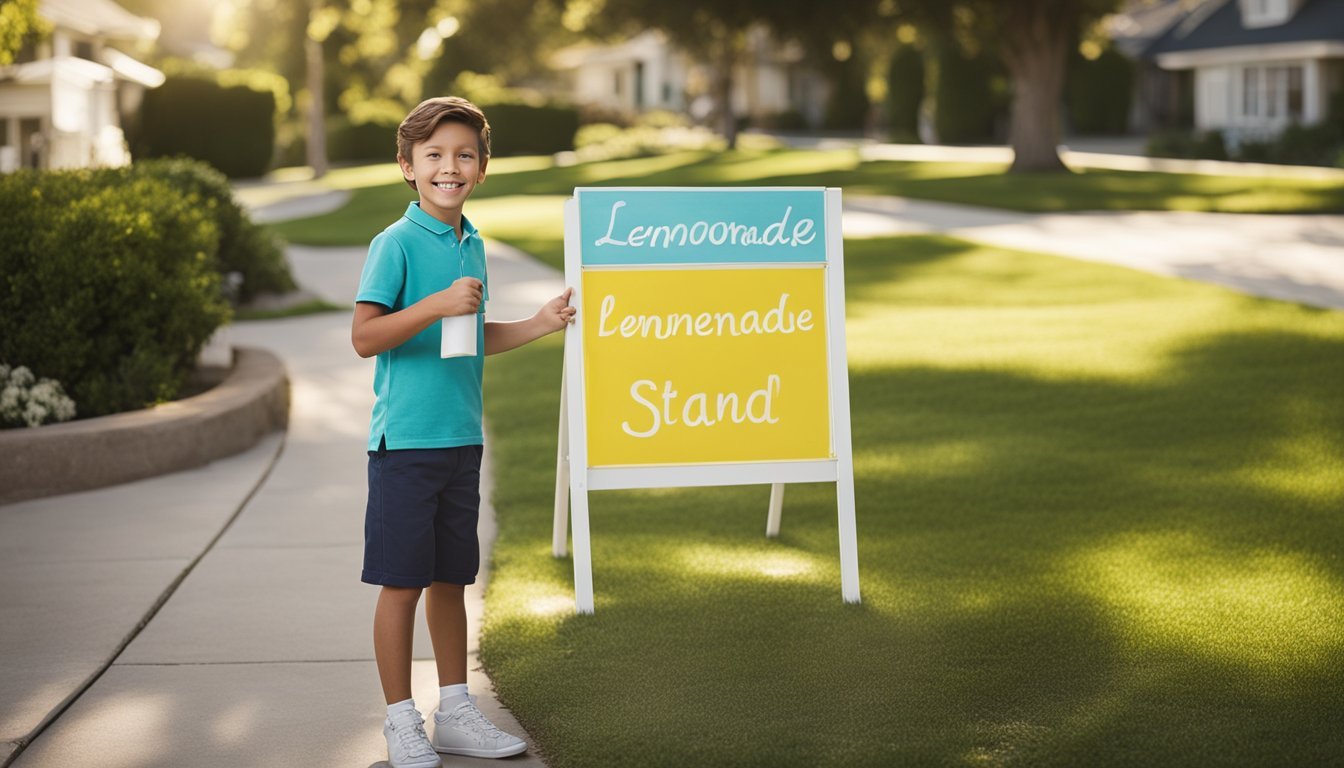Young Donald Trump Growing Up in Queens
Early Years of a Future President
Donald Trump's childhood offers intriguing insights into the development of his personality and future behaviors. Born in 1946 in Queens, New York, young Trump grew up in a wealthy family and displayed a strong-willed nature from an early age. As a child, Trump frequently acted up in class and earned the ire of his teachers, foreshadowing his later penchant for pushing boundaries and attracting attention.
Trump's formative years were marked by significant events that shaped his worldview. His mother's prolonged illness when he was a toddler led to a period of perceived abandonment, potentially influencing his emotional development. At age 13, Trump's parents sent him to the New York Military Academy, a strict boarding school that aimed to instill discipline and structure in the rebellious youth.
These early experiences, from his privileged upbringing to his time in military school, played a crucial role in molding Trump's character. His childhood behaviors and family dynamics offer valuable context for understanding the man who would later become a prominent business figure and the 45th President of the United States.
Early Life and Family Background
Donald Trump was born into a wealthy family in Queens, New York. His upbringing in Jamaica Estates and family dynamics shaped his early years and future trajectory.
Parents and Lineage
Donald John Trump was born on June 14, 1946, to Fred Trump and Mary Anne MacLeod Trump. Fred Trump was a successful real estate developer in New York City. Mary Anne, a Scottish immigrant, came to the United States in 1930.
Fred Trump built his fortune developing and managing apartment complexes in Queens and Brooklyn. His business acumen and entrepreneurial spirit greatly influenced young Donald.
Mary Anne Trump played a significant role in Donald's upbringing, instilling Scottish values and work ethic in her children.
Siblings and Family Dynamics
Donald Trump was the fourth of five children. His siblings included:
Maryanne Trump Barry (oldest)
Fred Trump Jr.
Elizabeth Trump Grau
Robert Trump (youngest)
The Trump children grew up in a competitive household. Fred Trump Sr. emphasized success and achievement, which created a driven but sometimes tense family dynamic.
Donald's relationship with his older brother Fred Jr. was particularly complex. Fred Jr.'s struggles with alcoholism and eventual death had a profound impact on Donald.
Jamaica Estates: A Childhood Home
The Trump family resided in a 23-room house in Jamaica Estates, an affluent neighborhood in Queens. This exclusive enclave provided a sheltered environment for young Donald.
The family's wealth was evident in their lifestyle. Donald was driven to private school by a chauffeur, setting him apart from many of his peers.
Jamaica Estates, with its tree-lined streets and large homes, represented the American dream that Fred Trump had achieved. This environment likely shaped Donald's aspirations and expectations for success.
Education
Donald Trump's education shaped his early years and set the stage for his later career. His schooling ranged from private institutions to military academy to prestigious universities.
Private Schools and Early Education
Trump began his education at the Kew-Forest School in Forest Hills, Queens. This private day school provided a foundation for his early learning. He attended Kew-Forest from kindergarten through seventh grade.
At age 13, Trump's parents decided to send him to a more structured environment due to behavioral issues.
New York Military Academy Experience
In 1959, Trump enrolled at the New York Military Academy (NYMA). This strict boarding school aimed to instill discipline and leadership skills in its students. At NYMA, Trump excelled in athletics and was named a captain in his senior year.
The military-style education had a significant impact on young Trump. He learned to navigate a hierarchical system and developed a competitive drive. Trump graduated from NYMA in 1964.
Higher Education at Fordham and Wharton
After NYMA, Trump attended Fordham University in the Bronx for two years. He then transferred to the Wharton School of Finance and Commerce at the University of Pennsylvania.
At Wharton, Trump studied real estate, following in his father's footsteps. He graduated in 1968 with a bachelor's degree in economics. This education provided Trump with business knowledge he would later apply in his career as a real estate developer.
Character Development
Donald Trump's early years were marked by distinct personality traits and influences that shaped his future persona. His childhood experiences and family dynamics played crucial roles in molding his character and ambitions.
Childhood Traits and Interests
Young Donald exhibited a strong-willed and energetic nature from an early age. He displayed a penchant for attention-seeking behavior and often pushed boundaries. Trump's childhood interests centered around activities that allowed him to stand out and assert himself. He showed an early fascination with real estate, accompanying his father on construction site visits. This exposure sparked his interest in the business world and laid the foundation for his future career path.
Athletics and Competitiveness
Sports played a significant role in Trump's youth, particularly baseball. He excelled as a first baseman and possessed a powerful batting ability. His athletic prowess fostered a deep-seated competitive drive that extended beyond the playing field. This competitive spirit became a defining characteristic, influencing his approach to business and personal endeavors later in life. Trump's desire to win and outperform others was evident in various aspects of his childhood activities.
Influence of Fred Trump
Fred Trump, Donald's father, had a profound impact on his son's character development. As a successful real estate developer, Fred instilled in Donald a strong work ethic and business acumen. He emphasized the importance of assertiveness and leadership. Fred's strict parenting style and high expectations pushed Donald to strive for success and recognition. This paternal influence shaped Trump's views on wealth, power, and achievement. The father-son dynamic fostered both admiration and a desire to surpass his father's accomplishments, fueling Donald's ambition and drive to make his mark in the real estate world and beyond.
Early Signs of Entrepreneurship
Donald Trump exhibited an entrepreneurial spirit from a young age. His childhood pursuits and observations of his father's real estate business laid the foundation for his future career.
Lemonade Stands and Ventures
As a child, Trump displayed an early interest in making money. He set up lemonade stands in his Queens neighborhood, a classic childhood business venture. Trump also showed creativity in finding ways to profit, collecting and selling soda bottles for their deposits. He reportedly organized other children to help gather bottles, demonstrating leadership skills.
At 13, Trump collaborated with a friend to buy toy soldiers at low prices from a Brooklyn store. They then resold the toys to their neighbors' children for a profit. This early arbitrage venture showcased Trump's ability to spot opportunities and capitalize on price differences.
Lessons in Real Estate and Business
Trump's father, Fred Trump, was a successful real estate developer in New York. Young Donald often accompanied his father to construction sites and rental properties. These experiences exposed him to the intricacies of the real estate business from an early age.
Fred Trump taught his son valuable lessons about negotiation, cost management, and the importance of location in real estate. Donald observed his father's hands-on approach to business, including how he interacted with contractors and tenants. This firsthand education in real estate development and management significantly influenced Trump's future career path.
At the Kew-Forest School, Trump demonstrated leadership by organizing and captaining sports teams. These early experiences in teamwork and leadership foreshadowed his future role as a businessman and public figure.
Incidents and Anecdotes
Donald Trump's childhood was marked by attention-grabbing behavior and disciplinary challenges. His actions as a youth led to significant consequences that shaped his formative years.
The Military School Decision
At age 13, Trump's parents sent him to New York Military Academy. This decision came after repeated behavioral issues at Kew-Forest School. Trump had developed a reputation for being unruly and disruptive in class.
The military school environment aimed to instill discipline and structure in young Trump's life. He spent five years at the academy, where he faced strict rules and rigorous training. This experience exposed him to a hierarchical system and competitive atmosphere.
Trump later claimed the academy taught him more about life than real estate. The military setting provided opportunities for leadership roles and athletic achievements.
Childhood Mischiefs and Stories
As a child, Trump displayed a penchant for mischief and attention-seeking behavior. Classmates recall incidents of hair-pulling and disruptive actions in school. He often led a group of boys in pranks and rebellious activities.
Trump's childhood friends describe him as energetic and assertive. He showed early signs of competitiveness, always striving to be first or best in games and activities. One notable incident involved throwing rocks at a neighbor's toddler.
His tendency to push boundaries extended to his relationships with authority figures. Teachers noted his argumentative nature and reluctance to follow rules. These traits persisted throughout his youth, contributing to his reputation as a challenging student.
Influences and Aspirations
Donald Trump's childhood was shaped by key figures and ambitions that set the foundation for his future pursuits. His early experiences and role models played a significant part in molding his aspirations and worldview.
Inspiration from Prominent Figures
Fred Trump, Donald's father, was a major influence on the young Trump. As a successful real estate developer, Fred instilled in Donald a strong work ethic and business acumen. Donald often accompanied his father to construction sites, learning the ins and outs of the real estate industry firsthand.
Trump also admired powerful businessmen and celebrities. He looked up to TV personalities and wealthy magnates, seeing their lifestyles as something to emulate. These figures fueled his desire for fame and fortune from an early age.
Early Business and Life Goals
From a young age, Trump displayed an interest in business and making money. He showed entrepreneurial tendencies, selling soda bottles and running small ventures with friends. His goal was to follow in his father's footsteps and become a successful real estate developer.
Trump initially aspired to become a pilot, fascinated by the glamour and excitement of flying. However, his father steered him towards real estate, seeing it as a more practical and profitable career path.
By his teenage years, Trump's ambitions expanded. He set his sights on becoming a prominent businessman in New York City. He dreamed of building skyscrapers and leaving his mark on the Manhattan skyline.
Cultural and Societal Context
Donald Trump's childhood was shaped by the unique cultural landscape of 1960s America and his upbringing in Queens, New York City. These influences played a significant role in molding his worldview and future persona.
1960s America: Setting the Scene
The 1960s in the United States was a decade of profound social and cultural change. The Vietnam War escalated, sparking widespread protests and dividing the nation. The Civil Rights movement gained momentum, challenging long-standing racial inequalities. Television became a dominant force, shaping public opinion and consumer culture.
Young Donald Trump came of age during this tumultuous period. The era's emphasis on individualism and self-expression likely influenced his later brash personality. The decade's economic prosperity, especially in real estate, set the stage for Trump's future business ventures.
Queens and New York City Influence
Queens, one of New York City's five boroughs, significantly impacted Trump's formative years. The neighborhood of Jamaica Estates, where Trump grew up, was predominantly white and affluent. This environment instilled in him a sense of privilege and ambition.
New York City's competitive real estate market exposed young Trump to the world of property development. His father Fred Trump's success in this field provided a model for Donald's future career. The city's diverse population and vibrant culture likely contributed to Trump's comfort with media attention and public speaking.
Queens' proximity to Manhattan allowed Trump to witness the glamour and power of New York's elite, possibly fueling his aspirations for wealth and fame.






